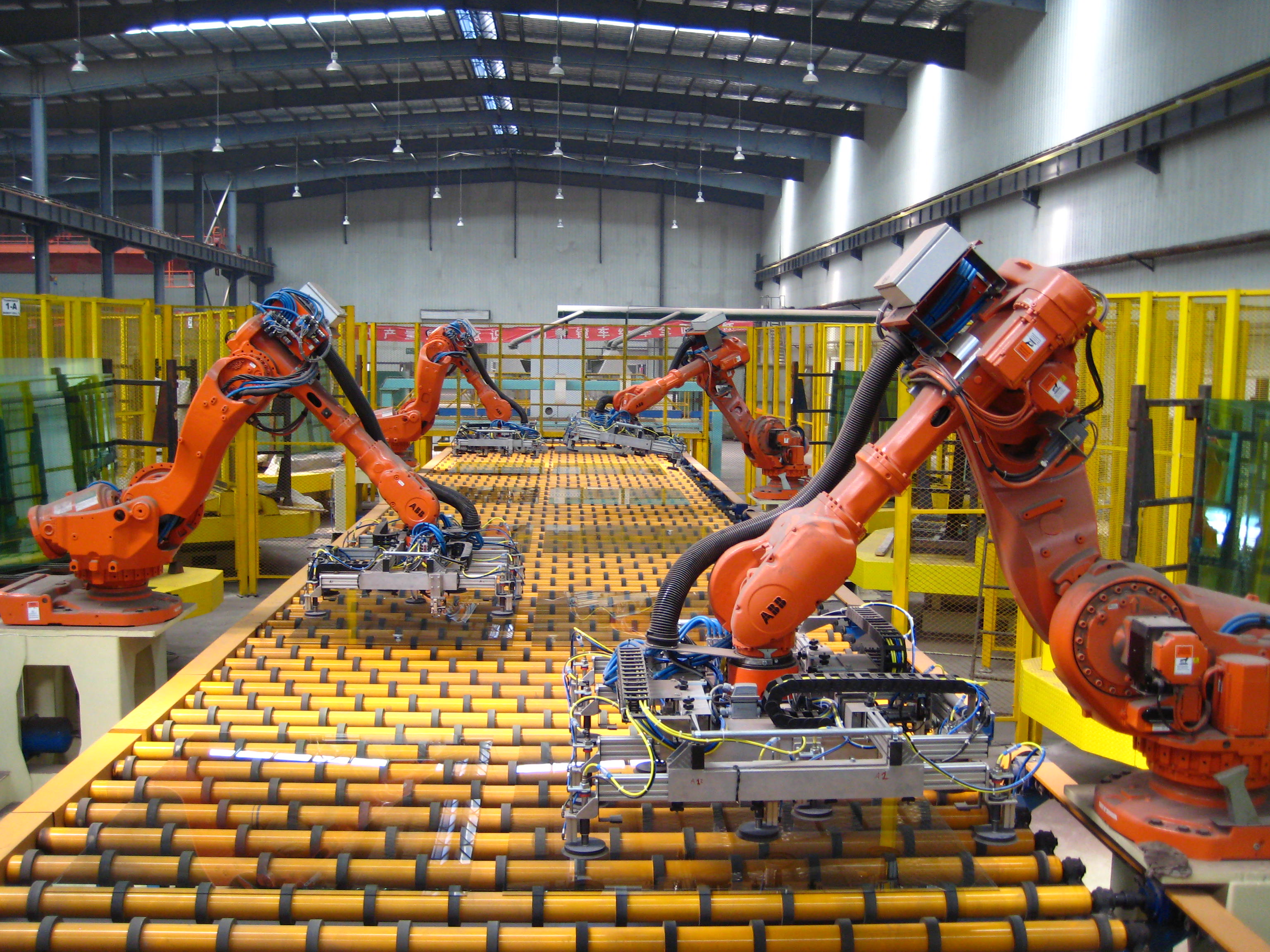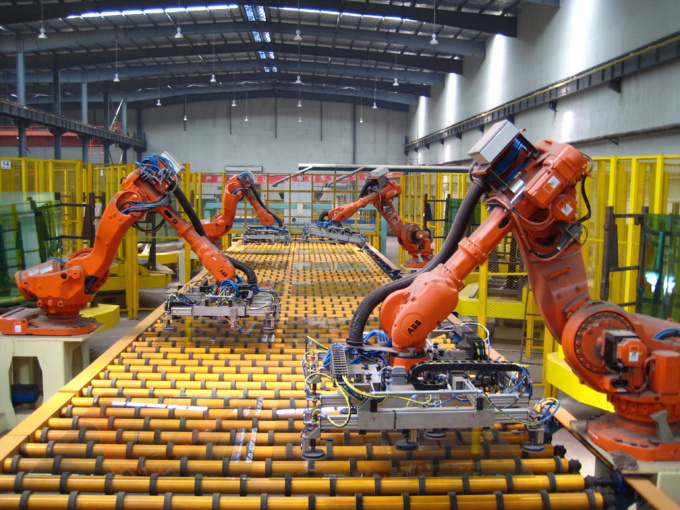Drivers
Development of autonomous driving systems will inevitably affect taxi drivers, and indeed all carriers in general. It is predicted that all transport will become automated in the US in 15 years. Self-driving vehicles will replace taxi and public transport drivers, excavator operators, truck drivers, and chauffeurs.
The largest companies have been testing unmanned vehicle control systems for years already. Unmanned cars are already used as taxis in Pittsburgh, Pa., and in Singapore.
By 2025, American automakers are planning to start mass production of unmanned vehicles for a wide range of buyers. For now, existing solutions require human control. But it is believed that human drivers will be the weakest link in the future systems, and that their participation in the traffic is better reduced to a minimum.
Cars will exchange information, be aware of oncoming traffic, and change the trajectory depending on this data. Not even a traffic light will be needed - the cars themselves will see that another car crosses the road and avoid collisions.
Conveyor workers
Robots are pushing manual labor out of production. Adidas built a fully automated Speedfactory plant in Germany, where everything - from modeling clothes to sewing them - is done by robots. The process of producing a pair of sneakers from start to finish takes about five hours. For comparison, a similar process can take several weeks at a typical Adidas supply chain in Asia. Robots will also be able to quickly sew shoes for particular clients, which is a significant competitive advantage.
Waitstaff
Some customer service systems have already been automated. In any large city, you can find ATMs, terminals for payment of various services, vending machines for food, self-checkout, automated parking. Even libraries are laying off their employees and replacing them with robots.
There is no doubt that the majority of catering establishments will prefer living robots in ten years. Already, there are restaurants with tablets that accept orders from guests. The waiters just bring the dishes to the right table. And there is not a single waiter in one of Chinese restaurants.
When calling for support, we increasingly hear the voice of an answering machine on the other end of the line. Only rare cases require an operator’s presence, because most often the automated answering machine is able to provide an answer to the question of interest.
Journalists
There is an opinion that even such a creative profession as a journalist can become unclaimed. According to analysts, 9 out of 10 news articles will be automatically generated by computers in 15 years. Forbes magazine already uses services of robot journalists to create and verify annual reports, and robots quickly write and publish the latest sports news in the Big Ten Network.
Experts are confident that functional programs with artificial intelligence, connected to databases with text materials, will be able to generate articles in some genres without human intervention. Prototypes of such software, paraphrasing tools, still exist today, only quality of the text they create leaves much to be desired.
Soldiers
The military industry is developing by leaps and bounds. Combat systems are being upgraded continuously, regularly surprising us with technological innovations. And the military is increasingly using robots. Unmanned aerial vehicles, anti-aircraft systems with remote control, robots for mine clearance and other machines are widely used.
Speed of automation of armies of leading countries will only grow. Governments understand the indisputable benefit of military robots - they will not get tired, they will not be mistaken and will not go over to the side of the enemy. And tirelessness makes them ideal soldiers.
Development of autonomous driving systems will inevitably affect taxi drivers, and indeed all carriers in general. It is predicted that all transport will become automated in the US in 15 years. Self-driving vehicles will replace taxi and public transport drivers, excavator operators, truck drivers, and chauffeurs.
The largest companies have been testing unmanned vehicle control systems for years already. Unmanned cars are already used as taxis in Pittsburgh, Pa., and in Singapore.
By 2025, American automakers are planning to start mass production of unmanned vehicles for a wide range of buyers. For now, existing solutions require human control. But it is believed that human drivers will be the weakest link in the future systems, and that their participation in the traffic is better reduced to a minimum.
Cars will exchange information, be aware of oncoming traffic, and change the trajectory depending on this data. Not even a traffic light will be needed - the cars themselves will see that another car crosses the road and avoid collisions.
Conveyor workers
Robots are pushing manual labor out of production. Adidas built a fully automated Speedfactory plant in Germany, where everything - from modeling clothes to sewing them - is done by robots. The process of producing a pair of sneakers from start to finish takes about five hours. For comparison, a similar process can take several weeks at a typical Adidas supply chain in Asia. Robots will also be able to quickly sew shoes for particular clients, which is a significant competitive advantage.
Waitstaff
Some customer service systems have already been automated. In any large city, you can find ATMs, terminals for payment of various services, vending machines for food, self-checkout, automated parking. Even libraries are laying off their employees and replacing them with robots.
There is no doubt that the majority of catering establishments will prefer living robots in ten years. Already, there are restaurants with tablets that accept orders from guests. The waiters just bring the dishes to the right table. And there is not a single waiter in one of Chinese restaurants.
When calling for support, we increasingly hear the voice of an answering machine on the other end of the line. Only rare cases require an operator’s presence, because most often the automated answering machine is able to provide an answer to the question of interest.
Journalists
There is an opinion that even such a creative profession as a journalist can become unclaimed. According to analysts, 9 out of 10 news articles will be automatically generated by computers in 15 years. Forbes magazine already uses services of robot journalists to create and verify annual reports, and robots quickly write and publish the latest sports news in the Big Ten Network.
Experts are confident that functional programs with artificial intelligence, connected to databases with text materials, will be able to generate articles in some genres without human intervention. Prototypes of such software, paraphrasing tools, still exist today, only quality of the text they create leaves much to be desired.
Soldiers
The military industry is developing by leaps and bounds. Combat systems are being upgraded continuously, regularly surprising us with technological innovations. And the military is increasingly using robots. Unmanned aerial vehicles, anti-aircraft systems with remote control, robots for mine clearance and other machines are widely used.
Speed of automation of armies of leading countries will only grow. Governments understand the indisputable benefit of military robots - they will not get tired, they will not be mistaken and will not go over to the side of the enemy. And tirelessness makes them ideal soldiers.



















